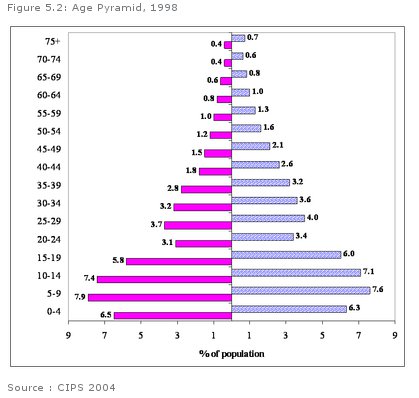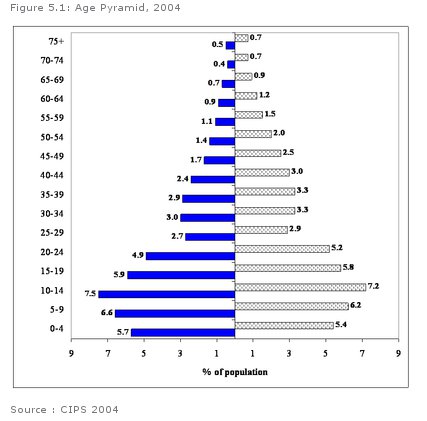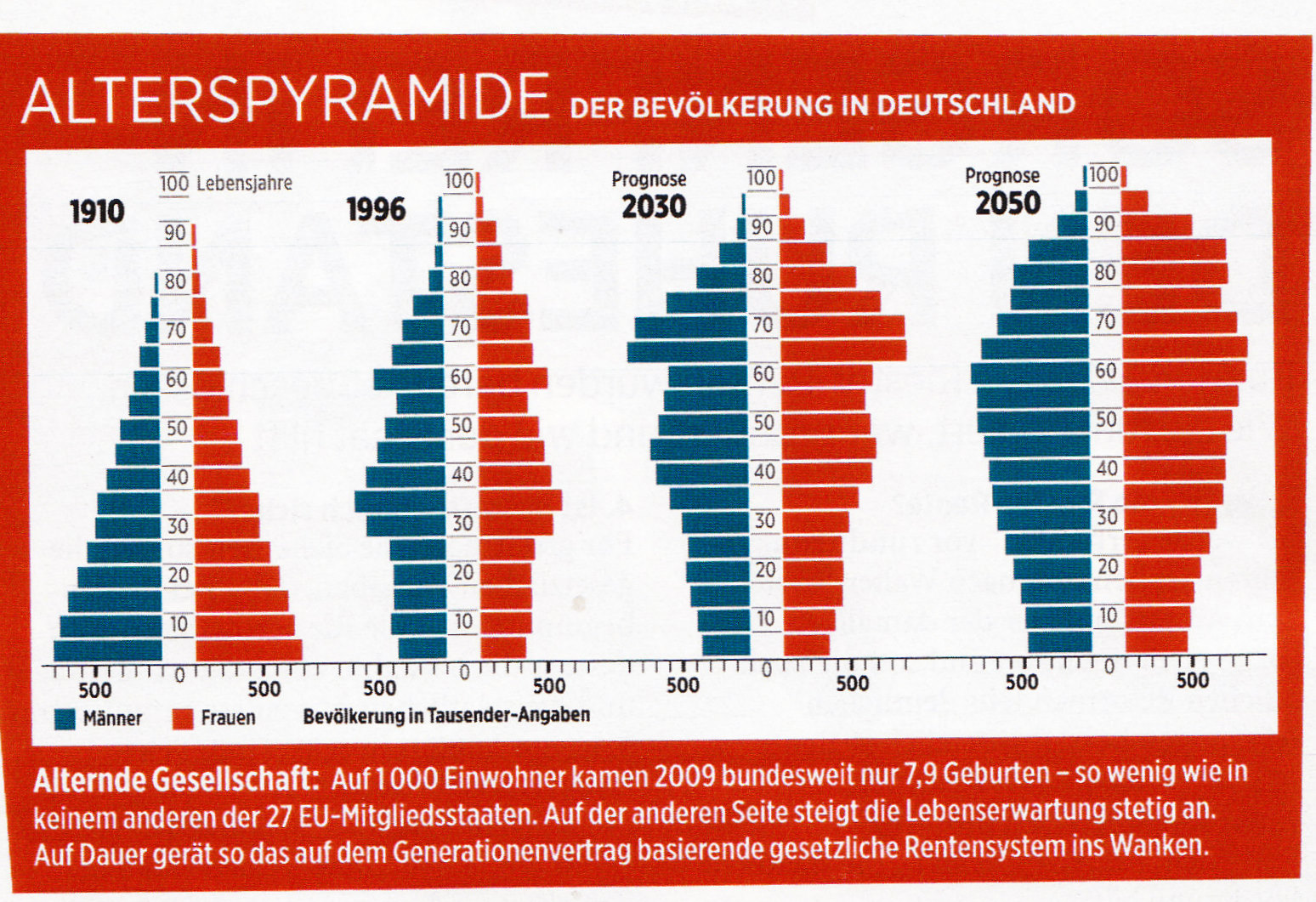The Mirror, Vol. 14, No. 685
Pchum Ben – Ancestors’ Day – is a Cambodian religious festival, a time when many Cambodians show special respect to their relatives which have died already. 7 to 9 October are National Holidays in 2010.
Still in Germany – for about another week – I was reminded in a special way to think of our ancestors, the present generations, and the sequence of generations into the future. All of a sudden I became aware that the average age of Germans is obviously clearly higher than the average age of Cambodians. I knew the numbers before, but being in Germany I saw it. This is especially obvious when comparing people in both countries visiting certain public places, like restaurants, or the offices of mobile phone companies, or banks, or going to touristic places: Cambodians are young, and Germans are old.
The Cambodian National Institute of Statistics (NIS) conducted a survey in 2004 among a representative sample of households. The Cambodia Inter-Censal Population Survey [CIPS] showed an estimated population in Cambodia on 3 March 2004 of 12.824 million people. Approximately 51.7% of the population were female and 48.3% were male (I did not have similar, statistically comparable documents at hand – but even older statistics and some future predictions show the trends clearly). On the left side of the trees are the figures of male, and on the right side of female citizens.
Some consequences for the next couple of years are obvious: there will be less and less young people in Germany in the economically active and productive age group to carry the burden of caring for an increasing proportion of old people. And in Cambodia the large number of young people having jobs already will stay in these jobs for many years to come – and there will probably not be a huge economic growth creating more and more job positions. And there will not be enough young people in Germany to take over the positions of those who are retiring when they are old.
Will there develop new patterns of international cooperation – not specifically between Cambodia and Germany, but on a global level – to help to deal with such “population pyramids” which are not balanced?
Have a look at the last editorial – you can access it directly from the main page of the Mirror.
And please recommend The Mirror also to your colleagues and friends.




Recent Comments